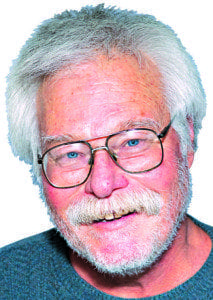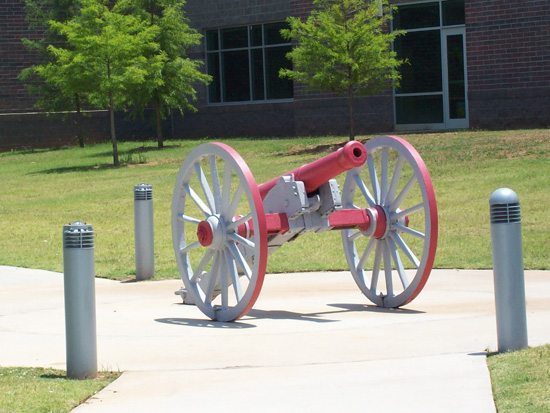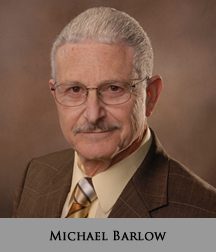BY JOHN THOMPSON
 Oklahoma City legend Mike Barlow died last fall at the age of 71. His funeral at the Temple B’nai Israel was attended by a sanctuary full of friends and family; teachers and administrators from within and without Oklahoma City; leaders and the rank-in-file of both teachers unions; civil rights and social justice activists; and, of course, fellow worshipers committed to the Jewish faith, locally and in Israel.
Oklahoma City legend Mike Barlow died last fall at the age of 71. His funeral at the Temple B’nai Israel was attended by a sanctuary full of friends and family; teachers and administrators from within and without Oklahoma City; leaders and the rank-in-file of both teachers unions; civil rights and social justice activists; and, of course, fellow worshipers committed to the Jewish faith, locally and in Israel.
Although Michael would go on to become a small business owner for 30 years serving Oklahoma school districts, an inductee into the Oklahoma Educators Hall of Fame, and a leader in the Oklahoma City Jewish community, his record of service and activism began when he first entered the teaching profession.
His career begins as the story of a longhaired 33-year-old who won the admiration of the legendary American Federation of Teachers President Al Shanker, and who helped transform the Oklahoma City teaching profession.
When Mike became an Oklahoma City Public School System teacher in 1968, he sure didn’t look the part. All he had to wear to class were two old $20 iridescent suits from college. [But he went overboard and shocked students by buying a black suit suited only for a pastor or undertaker.]
Mike ignored his principal’s threats regarding his sideburns [a teacher had recently lost his job basically because he wore a mustache] and became probably the first OKCPS teacher to wear a beard.
Mike brought some unique assets to South OKC schools. He had attended a New York City high school that was two-thirds non-white, mostly black and Puerto Rican. His favorite teacher had spoken passionately during a strike about the improvements needed in education and how the union was the way to achieve results.
Mike landed at Grant High School, serving a community that embodied an external stoicism born of the Dust Bowl and the Depression.
Southsiders had served in disproportionate numbers in combat during World War II, the Korean War, and in Vietnam. They were close-mouthed about their ordeals. Even in the outwardly more comfortable neighborhoods of the Grant area, the demons from their trauma was just below the surface.
Grant patrons were just as friendly as anyone else in our famously neighborly state. But their ordeals perpetuated a mindset of “I got mine” that drove a wedge between whites and blacks.
Mike – a self-avowed ham, actor, and comedian – also drew heavily on humor in the classroom. He created a successful discussion style of teaching, as he learned the reasons why his [and others’] testing strategies were disastrous. This was the time before Special Education legislation had been passed; many students had reading difficulties and some couldn’t read at all. Mike also saw the brutal effects of corporal punishment rendered at home as a cycle of abuse was often perpetuated.
During Mike’s first years in the classroom, classes of 40-plus were the norm, but then he was given a ridiculously large class of 61. He pushed back and forced the administration to reduce his numbers to a “manageable” class size of 44.
Mike became a civil rights leader as Grant became the epicenter of violence during the desegregation battles that culminated in busing to achieve racial balance. In 1975, a student was murdered in their halls. The school often had a dozen or so police officers assigned to it, and it even had national television crews and National Guard helicopters circle around it.
Mike also led a panel discussion at Grant where one of his students asked the anti-busing activist, Yvonne York, whether she would ever consider living next to a black family. Mrs. York replied, “Of course, I would. I would not mind living next to them as long as they kept up their yard and didn’t make trouble.”
Mike later told Mrs. York that it was alright for her to have her views as a private citizen, but as a school board member, she should follow the court order and support whatever methods would be necessary to implement desegregation. Mike quietly and privately told her that in his opinion she was a bigot. She told him that she would have him fired for that remark.
Mike taught a Human Relations class that brought together Freaks, Jocks, Soshs, Straights, Gays, and straight-laced students of all races. Students sat on the floor to better learn about sharing and caring.
He brought two beanbags from home, and soon the room was covered with beanbags from students’ homes and other assorted pieces of furniture. On the ceiling were stapled posters that they all brought in. Music posters from rock to country to soul helped reflect their commitment to brotherhood.
They also created the teaching tool known as “the Hot Seat” where students, Mike, other teachers, the principal and, even, the police shared their feelings.
Mike’s class also brought their quest for justice and racial equality into the streets, asking citizens to express their frank opinions, and to the neighborhoods, documenting housing discrimination.
Before long, Mike applied his pedagogies to labor/management conflicts. After leading an effort to talk through racial problems on a factory floor, he learned how much of its racial animosity was due to a communication problem throughout the organization.
Mike’s quest for racial healing would have been enough to assure his reputation as a crusader for justice. Before long, he made his mark as a labor activist.
In the late 1970’s, Mike, Clara Luper, and a grassroots coalition of teachers pushed back against the routine indignities that were imposed on teachers. High school teachers faced disgustingly over-crowded classes and serious discipline problems, often including violence. Elementary teachers had to deal with principals who ran their schools as mini-fiefdoms.
Mike led the process where the new AFT local established itself as a force at the bargaining table. The OKCPS pushed back and triggered a major confrontation.
Under his tenure, however, the union did something that was previously unthinkable. It suggested a lower wage increase in return for the district contributing to the teacher retirement payment system. It also changed the wording of the hugely important seniority provision from saying that seniority would be the tie-breaker when all other factors were equal, as opposed to being a factor when the administration determined that all other factors were equal.
When the OKCPS refused to honor its commitments, the union advised teachers on how to communicate informally and respectfully with their principals. When building administrators did not respond in kind, teachers learned to pull out grievance forms. Often, the central office knew its building administrators were wrong but it would refuse to openly address the teachers’ complaints. When that happened, under Mike’s leadership, the process would be replayed at a Board of Education meeting so the press could report on the actual facts of the matter.
Then, as now, the union was repeatedly slandered; for instance, it would be charged that the national AFT would dominate local affairs. But the national advisors taught Mike to never to get personal with the other negotiator. After Mike lost his temper with an administrator, he was taught, “Each time you demean him personally, he’ll just file that away and get you back someday.”
That is why it was such a shock for Mike when ATF President Al Shanker handed him an envelope with the demands the national union said he must push for. Mike’s mind raced for words to say until Shanker laughed and took it back, and opened it up for everyone to see that it was empty.
As teachers need to now relearn, the process of earning the respect from management was excruciating. Pushing back against teachers, more and more principals took a dismissive attitude toward them. The result was a 12-day teachers strike. It began after 1,500 teachers, members of both the AFT and the NEA affiliate, called for a strike. Students and the police union sided with the teachers.
The situation was made worse by an administrative culture which prevented the honest truth of the matter from being expressed. Nobody in the administration could tell the boss that things are not good at the bargaining table and they could explode at any time. The situation was further aggravated when the board, the superintendent and their attorney conducted a secret meeting by telephone. This was almost certainly a violation of the Open Meetings Act.
The strike ended in a draw, but in the long view it was clear that the labor action was a victory in terms of what really mattered. Teachers had shown self-respect. They stood up for their dignity.
Afterwards, Mike helped the system and teachers put their hurt feelings behind them. He did his best to put out of mind who was and who was not a striker. He then continued to serve the educators and students of Oklahoma for another 35 years through his company, and was inducted into the Oklahoma Educators Hall of Fame in 2010.
– Dr. John Thompson, an education writer whose essays appear regularly in The Oklahoma Observer, has a doctorate from Rutgers University and is the author of Closing the Frontier: Radical Responses in Oklahoma Politics. His latest book, A Teacher’s Tale, is available through Tate Publishing. A shortened version of this essay first appeared in the January print edition of The Oklahoma Observer.








